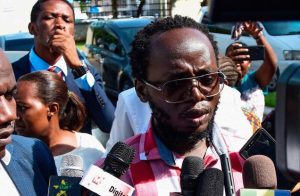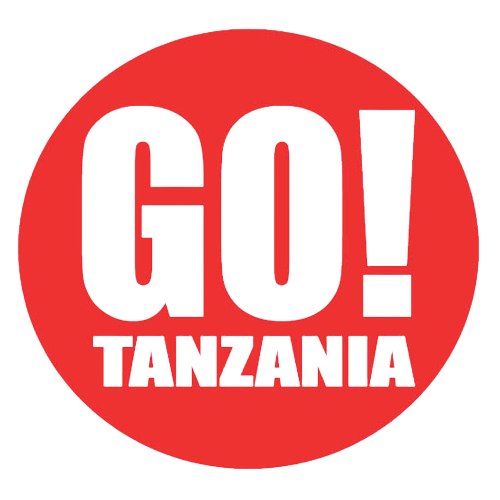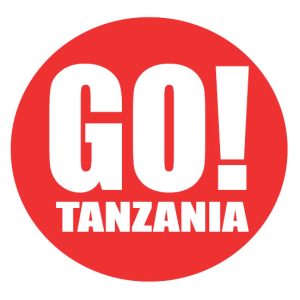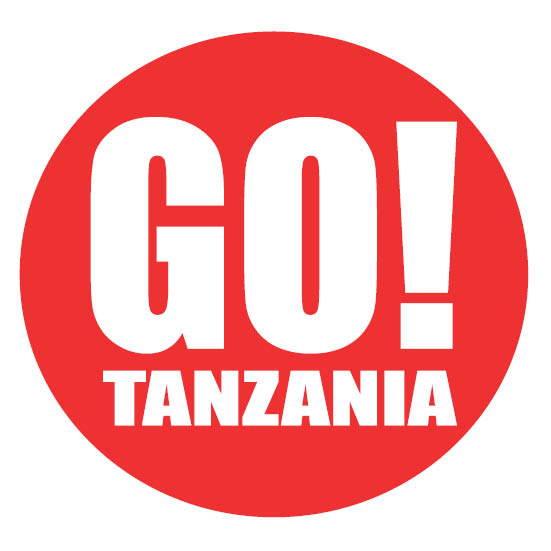
In a significant legal development, the High Court Sub-Registry in Dar es Salaam has issued a summons to Vodacom, directing the telecommunications giant to appear and submit crucial documents for its defense in a lawsuit filed by investigative journalist Erick Kabendera.
Kabendera seeks substantial compensation of USD 10 million (approximately Sh 28 billion), alleging that Vodacom played a role in his arrest by facilitating his detention by the police, which he contends was a kidnapping followed by charges of economic sabotage in 2019.
Before initiating the lawsuit, Kabendera, known for his incisive investigative reporting, through his legal representative Peter Madeleka, sent a demand letter to Vodacom demanding USD 1 million (over Sh2.5 billion) in compensation. The company confirmed receipt of the letter and indicated they were assessing the claims through their legal team.
Following the expiration of the 14 days without any satisfactory response from Vodacom, Kabendera proceeded to file the lawsuit.
The case, registered under number 12799/2024, is set for its preliminary hearing on July 9, 2024, before Senior Judge Salma Maghimbi at 8:30 AM. The court summons mandates Vodacom to present all relevant documents intended for use in their defense.
Kabendera’s lawsuit outlines a litany of damages, both economic and non-economic, including social repercussions, psychological trauma, loss of personal development opportunities, and damage to his professional reputation.
He seeks USD 10 million in compensation for actual damages, plus court interest from the date of judgment until full payment, alongside additional compensation to be determined by the court.
The journalist recounts events leading to his arrest, detailing how he began experiencing communication disruptions on July 27, 2019.
When he switched on his phone after it had been turned off overnight, he discovered it had no network coverage. Attempts to resolve the issue through customer service were unfruitful, leading him to suspect foul play.
Subsequent efforts to withdraw money from his account to purchase medicine for his ailing mother led to further suspicious encounters with Vodacom customer service, culminating in a mysterious phone call and his subsequent arrest by individuals claiming to be police officers.
He alleges these events were orchestrated to silence his critical reporting, citing previous incidents where journalists and activists were similarly targeted.
Kabendera’s ordeal did not end with his arrest. He was subjected to interrogation sessions where police allegedly scrutinized his financial transactions and personal communications, painting him as a threat to national security.
Public statements by government officials, including then-President John Magufuli, portrayed Kabendera as a foreign agent and a menace to the nation’s stability, further damaging his reputation.
Under Magufuli’s leadership, Tanzania saw a tightening grip on media freedom and civil liberties, with journalists frequently facing harassment, arbitrary arrests, and intimidation for their critical reporting.
The government’s crackdown on dissenting voices, under the guise of combating corruption and safeguarding national interests, raised concerns among human rights advocates and international observers.
Kabendera’s case became emblematic of the challenges faced by journalists and activists during Magufuli’s tenure. Kabendera vs. Vodacom: Tanzania’s Press Freedom Test Unfolds in Landmark Lawsuit.
His arrest and subsequent legal battles underlined the risks associated with investigative journalism in Tanzania, where exposing corruption and challenging authority often came at a high personal cost.
Despite international pressure and calls for his release, Kabendera remained incarcerated for an extended period before entering into a controversial plea bargaining.
His decision to confess to charges of tax evasion and money laundering, under circumstances many viewed as coercive, sparked debates about the independence of Tanzania’s judiciary and the pressures faced by journalists under hostile regimes.
Following negotiations with the Director of Public Prosecutions (DPP), Kabendera paid significant fines and was released from custody.
However, the impact of his ordeal lingered, with the loss of his mother during his imprisonment adding a deeply personal dimension to his legal and emotional challenges.
The legal battle that ensued highlighted broader issues concerning media freedom and human rights in Tanzania.
Kabendera’s case drew attention to the need for robust protections for journalists and activists operating in increasingly restrictive environments, where dissent is often met with punitive measures and legal harassment.
As Kabendera prepares to present his case in court, the outcome of this lawsuit will likely have profound implications for press freedom and judicial independence in Tanzania.
The case not only scrutinizes the alleged collusion between a telecommunications giant and law enforcement but also tests the judiciary’s resolve in safeguarding the rights of journalists against arbitrary arrests and harassment.
Under former President John Magufuli’s administration, Tanzania witnessed a marked decline in media freedom, with journalists facing increased threats, censorship, and legal persecution for their investigative work.
The international community has closely monitored Tanzania’s treatment of journalists and activists, urging reforms to protect civil liberties and uphold democratic principles.
The outcome of Kabendera’s lawsuit will be closely watched as a barometer of Tanzania’s commitment to press freedom and human rights under its current leadership.
On June 18, 2024, in Mlimani City, Dar es Salaam, veteran journalist Tido Mhando delivered a scathing critique of Tanzania’s current media environment, highlighting how stringent legal and political pressures have compelled media outlets to prioritize lighter content like entertainment and sports over rigorous investigative journalism.
Mhando emphasized that this shift is not merely a business strategy but a survival tactic in a hostile climate where critical reporting faces significant risks of reprisal.
The forum also featured a significant presentation by a special committee appointed by President Samia Suluhu Hassan, detailing a comprehensive report on the challenges and achievements within Tanzania’s media sector. The report critically assessed the operational difficulties faced by media organizations across the country.
In response to these concerns, President Samia Suluhu Hassan pledged government intervention to alleviate economic hardships within the media industry, including commitments to settle outstanding debts owed to media outlets by the year’s end.
Her assurances were met with cautious optimism from stakeholders who have long advocated for tangible reforms to support media freedom and sustainability.
“We acknowledge the pivotal role of the media in our society and are committed to ensuring it operates with freedom and fairness,” President Samia reaffirmed, signaling a potential turning point in government-media relations under her leadership.
The President’s statements highlighted a renewed promise to uphold press freedom and foster an environment conducive to journalistic integrity and socio-economic progress in Tanzania.
For those following this unfolding legal saga, the proceedings will not only shape the future of investigative journalism in Tanzania but could also set precedents for how other nations navigate the delicate balance between national security concerns and the protection of free speech.
Panafricanvisions.com



